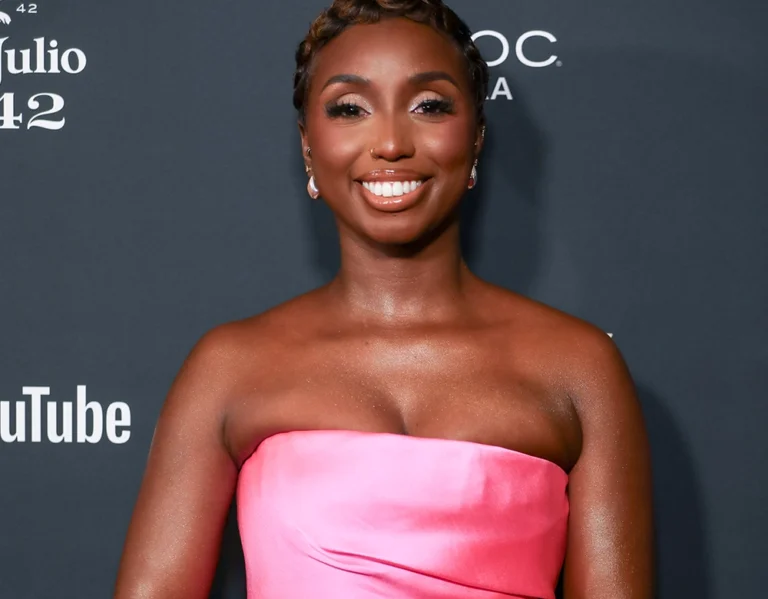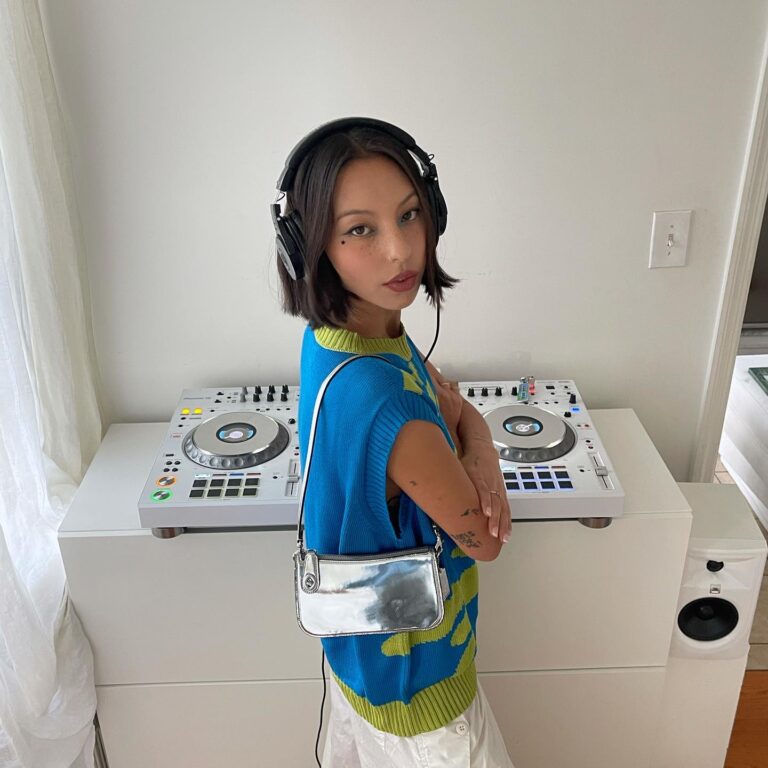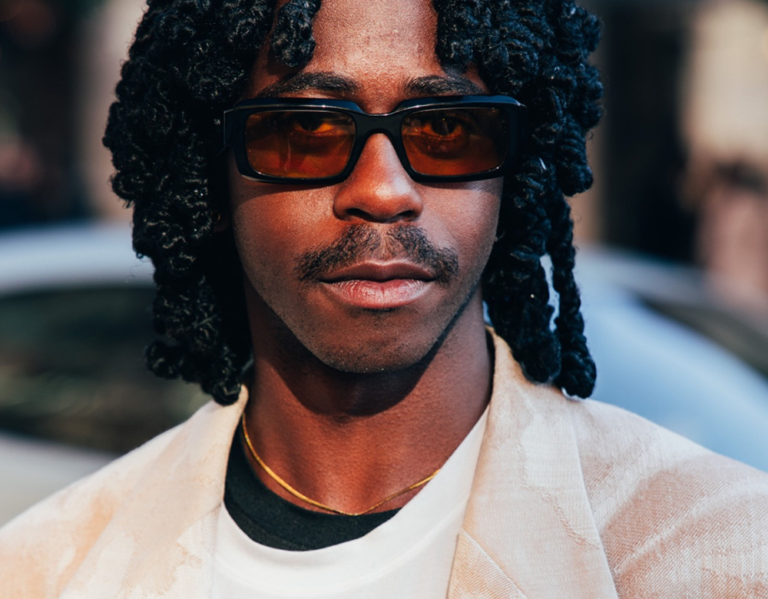Zoe Matilda, Founder and Director, ZMM Agency, London

Hey Zoe, can you introduce yourself?
I’m Zoe Matilda and I’m 30. I was born in London but spent my formative years growing up in Cambridge, and then moved back to London for University. I am Ugandan by origin.
What is your job title and what do you do?
I am the founder and director of Zoe Matilda Management, also known as ZMM. We are a 360 creative agency, so elements are event production, talent management and partnerships. We also work on content production, primarily with the talent we represent. Most of our work is across the fashion, music, creative and entertainment spheres… That’s the elevator pitch!
"I wanted to use my experience to fill the gap and be the change"
What motivated you to create an agency that covers all these bases?
In short, The BLM resurgence during the pandemic. I was so aware of the unauthorised, two-dimensional, trend-driven activism that was going on and it was just so harrowing. At the time I was adjacent to the industry and was working with friends of mine on partnership projects. I wanted to use my experience to fill the gap and be the change. I wanted to create meaningful projects with brands that connect with different communities authentically.
Talent management was my bread and butter specifically during the pandemic because I had friends who needed to make money, as did I. We worked together on different partnerships and content pieces, and that’s how I got a real start on content production. However, event production has been what I wanted to do since I was a kid, working on that side of PR and special projects. When the world opened up again post-pandemic, that’s when things kicked off with events.
All the elements work together in a way. One of my talents, Otamere, is releasing his debut poetry anthology next year, so we’ll produce an event for that, which involves partnering with brands to make the event happen. There’ll be a comms rollout to secure press coverage. It just is all-encompassing with the agency. Of course it can be pretty intense at times, but it is also nice to have autonomy across the board.
What is the importance of working with POC and LGBTQ talent in today’s climate?
What I do is obviously time consuming and energy consuming, whether that’s social battery or emotional energy. There was such a huge push towards diversity and inclusion [around BLM]. However, since it was top-down led by people who are not diverse, it essentially feels like they needed to check a box and slot Black people in and it has dipped a bit. This just means you are not actually engaging with the community or that person’s story. I think that, for me, I need to fully believe in the people that I’m working with and the reasons behind it in order to do a good job. I want to do something meaningful, both for myself and for culture, and I’m surrounded by many black queer people that reflect my experience and vision. That’s why behind our partnerships there is actual substance and a message. It does mean you have to work harder, but it is a lot more fulfilling, and is representative of a hugely formative part of culture and society.
What have been your favourite projects you have worked on?
At the top would be shooting behind the scenes with Miss Jason on Alice Dearing’s fashion story for Wonderland. I grew up swimming and I was the only black girl on the swim team in Cambridge. I started lessons when I was two, joined a club when I was five, and swam until I was eighteen. There was such little representation for black female athletes, and none at all in swimming. The crossover between fashion and sport was also non-existent. So it meant so much to me.
A close second is the project with Shy Girl and Spotify where we took a group of her most loyal supporters on a creative writing retreat – that was really fab. It was intense; a 360 production with a really tight team that included producing the excursion, as well as the content piece to document it. But Shy had such a strong vision and it’s great to work with an artist whose creative direction is so clear. We hosted it near Hastings and lucked out with the weather and produced the most beautiful piece of content.


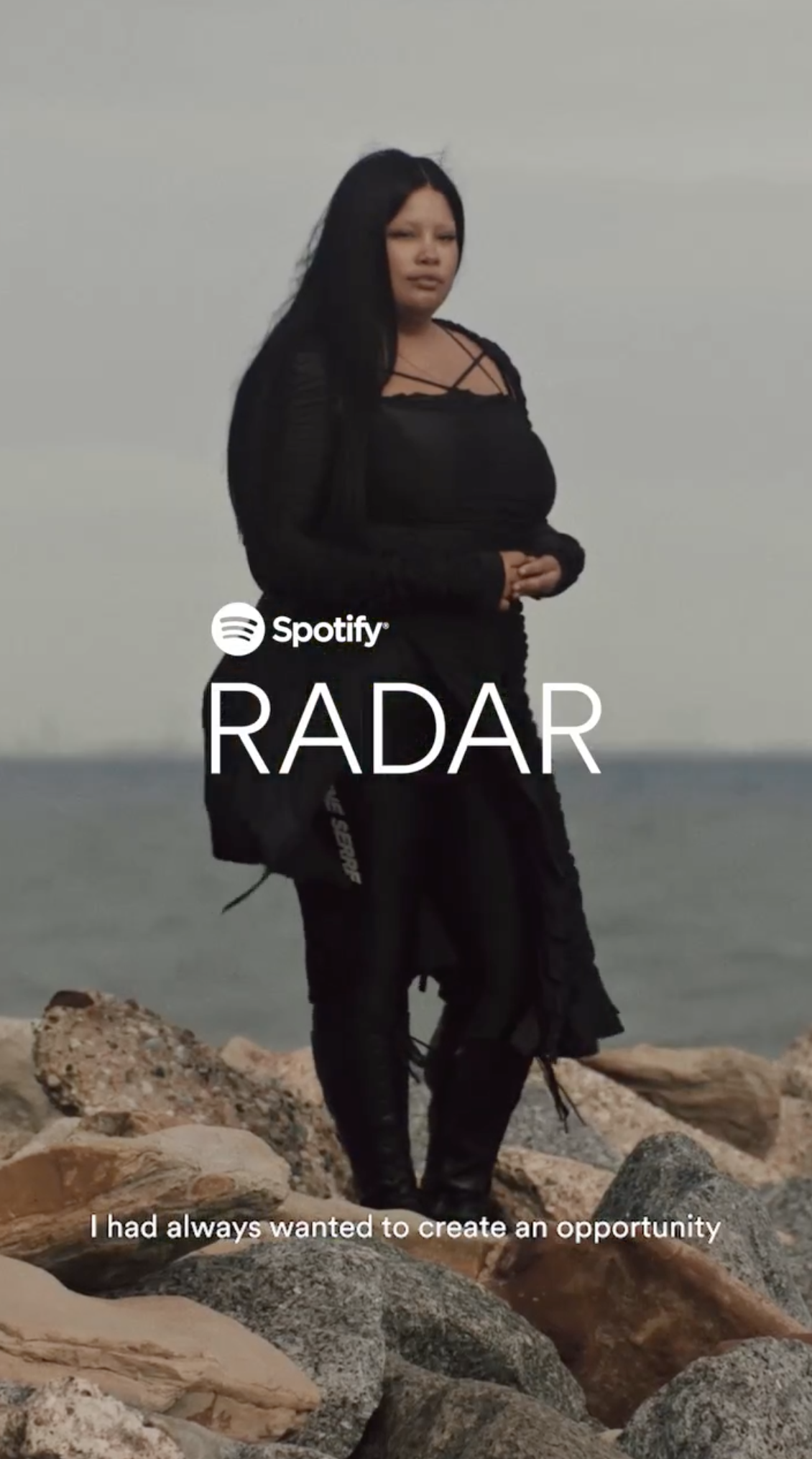
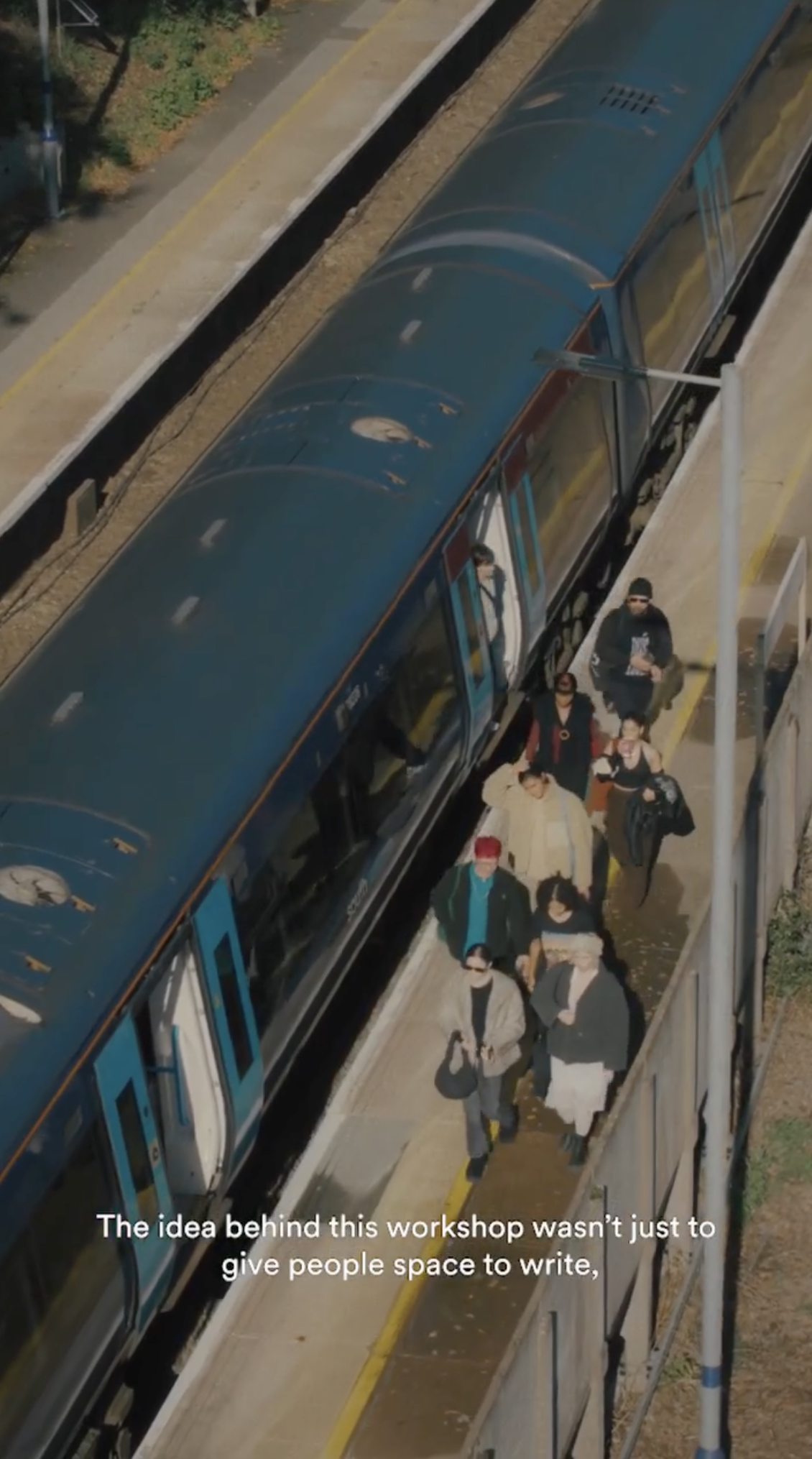
What features do you look for in a pitch when agreeing to work on a project?
The pitches that I am brought are super aligned with our ethos, as brands know we are an agency to come to when it comes to storytelling pieces and managing talent with strong identities and personalities. When it comes to turning things down, if the brand itself has a history of discriminatory behaviour and practices, especially when they are so recent, I’m just like, No girl, we haven’t forgotten about that. We also pitch a lot of ideas ourselves, which is time-consuming but gives us the chance to make sure brands are showing up authentically.
"The intention behind why you want to be influential, to take up space, is crucial."
What influences you to take talent on board?
Having an agenda outside of “I want to be a creator”. The intention behind why you want to be influential, to take up space, is crucial. I enjoy working with talent who have something to say, who are genuinely talented and who want to be a voice for change. Those are my favourite people to talk to.
What does a day in the office look like for you?
So varied. It can literally change at the drop of a hat. It could be meetings or I’ll check in with talent, especially those that have something imminent coming up. Then the rest of the day I’ll probably be back and forth between answering emails and working on whatever production is next up. It usually is one thing after the next. Most of the time there will also be events in the evening as well, so I end up being out late often. I love it though. I could never have a job where I did the same thing every day.
What did your time at university teach you?
Studying Law at LSE taught me tenacity, above all. While I was there I was very much still doing things that led to where I’m at now. I worked as a promoter for all the Mayfair clubs. It was my first job in London and I cringe looking back at it but it taught me how to work a crowd. It was my job to host people from my uni at the clubs and I was that girl! It was also easy money. I’d be like, “Guys can we all go to the club tonight!” And get paid cash in hand. I also joined the fashion society and worked on the annual fashion show during my second year.
The main thing I take from my time studying Law is the work ethic. I think knowing that I could be in a library until 3am working on torts or property law or something else I didn’t really give a fuck about has given me the ability to push through those late nights when I’m exhausted. At least now I get to work on stuff that I truly love. My degree helped me practically a great deal too, in terms of reading contracts etc. It also taught me not to be intimidated in majority white or conservative spaces which I definitely find myself in, even though growing up in a majority white area, that obviously wasn’t new to me. It’s a sad reality but a lot of rooms within fashion, art, even music, still lack a lot of diversity…
Did moving to London help you get to where you are today?
Yes, 100%. As shitty as it is for the rest of the UK, the creative industry is so London-centric in terms of output. You’re going to meet a lot more people, as this is where most of the creative activity takes place. I would also say my degree opened up doors for me. I had good grades from GCSE through to university, and it made it easier for me to get an internship. At the same time, I think that good grades alone don’t help. The actual content I studied for a lot of my education was not beneficial, but the grades were good and showed that I can essentially write emails and string a coherent sentence together. But for the industry I was entering, which was PR, being personable and having a keen interest in fashion was way more important.
What do you most enjoy about what you do?
It is so much fun, like genuinely so much fun. Being able to have an idea or a concept, whether it is for an event or a project and working on it to fruition and being happy with the outcome is so rewarding. With events, I love having an idea for it and then starting it with the first email you send and then by the end it is a fabulous party. Everyone’s having a great time and you look around and you think “I did that!” That’s something I love about my job.
What do you find most challenging in your line of work?
Time management is the most challenging because you always have to be ahead. There are always things happening now, but simultaneously you’re projecting things for Q2 next year. Day-to-day time management is also tough, like making sure that your clients are getting enough attention all whilst making sure that you are staying up to date with current trends and what’s going on. I’ve always said if I had one superpower it would be to pause time.
"Being able to connect with different people is crucial in this industry."
What qualities or personality traits do you think make someone a strong candidate to
flourish in your role?
You have to be personable.You have to be mindful when going into spaces [events etc] that you’re making the most of the opportunity and being intentional with your time whilst still having a good time. But if you’re going to a party and you know what you want to get out of it in terms of what contacts you want to make… Let’s say you’re looking for a stylist internship or assistant role. If you’re going to a party, know the face of the people you want to connect with, and try to connect with them naturally. I’m not saying be fake, but have something to approach them with – a recent piece of work or a project you admired. Being able to connect with different people is crucial in this industry. I’m not sure how much of that can be taught but there are definitely things you can do to help if it doesn’t come naturally. Secondly, I would say organisation. Whether it’s in your head or a hand-written list or on an app, make sure you’re on top of things.
What advice do you have for readers interested in your field?
Make connections, make connections, make connections and try different things! The good thing about working with creatives is that you’re usually surrounded by people you can connect with on a personal level. Of course it’s not monolithic, but I find that in the circles I run in, we think similarly, have similar world views, enjoy the same things and spend our time in similar ways. It’s really easy to form genuine connections. Make friends who are going to support you because those are going to be the people that you come up with. As much as it is beneficial to connect with people “above you” in your career objectives, connecting with people on your level is just as essential as those are the people you’re going to grow with.
LATEST THAT MAY INTEREST YOU


